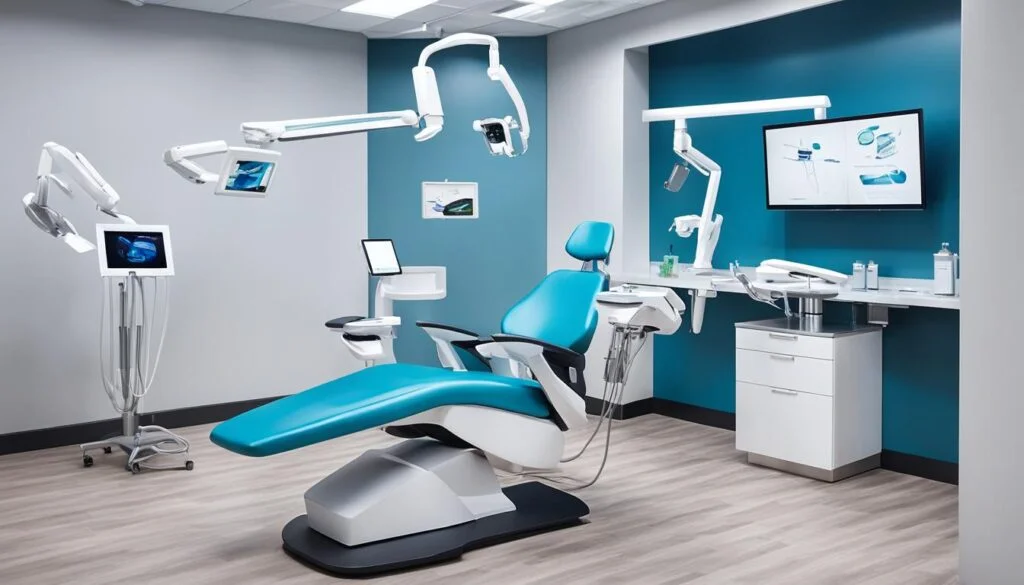
Germany, renowned for its precision and excellence in various fields, extends this reputation to its dental care system. This blog post is designed for individuals from abroad who seek to understand the intricacies of German dental clinics, especially focusing on their equipment and environment.
Whether you’re considering moving to Germany, planning to receive dental care during your visit, or simply curious about how German dental clinics operate, this guide will provide you with a comprehensive insight into what makes German dental care stand out.
Personnel Equipment in German Dental Clinics
German dental clinics are known for their high standards of care, which is significantly attributed to their well-trained and professional personnel. The personnel in a German dental clinic typically include dentists, dental assistants, hygienists, and administrative staff, each playing a crucial role in ensuring the best dental care for patients.
Dentists: Qualifications and Training Standards
In Germany, becoming a dentist is a rigorous process. It involves several years of education and training, starting with a university degree in dentistry, which usually takes about six years. This is followed by a state examination, and often, additional years of specialization, especially for those focusing on areas like orthodontics or oral surgery. German dentists are known for their thorough approach, often taking into account not just the immediate dental issue but the overall oral health of the patient.

Dental Assistants: Roles and Responsibilities
Dental assistants in Germany play a pivotal role in the smooth functioning of a dental clinic. Their responsibilities range from patient care, preparing and sterilizing instruments, to assisting dentists during procedures. They are also trained in administrative tasks, such as scheduling appointments and managing patient records. The training for dental assistants usually lasts for three years, combining both practical and theoretical knowledge.
Hygienists: Importance in Preventive Dental Care
Dental hygienists in Germany are key players in preventive dental care. They are responsible for performing professional dental cleanings, educating patients on proper oral hygiene, and assisting in the early detection of oral diseases. Their role is crucial in maintaining the long-term oral health of patients, thereby reducing the need for more invasive treatments.
Reception and Administrative Staff: Ensuring Smooth Clinic Operations
The reception and administrative staff are the first points of contact in a dental clinic. They ensure that the clinic runs smoothly by managing appointments, handling billing and insurance queries, and providing a welcoming environment for patients. Their efficiency and friendliness play a significant role in the overall patient experience.
Technical Equipment in German Dental Clinics
The technical equipment in German dental clinics is a testament to the country’s commitment to precision, efficiency, and patient comfort. This chapter will explore the various types of equipment commonly found in German dental clinics, highlighting how they contribute to effective treatment and patient care.
Dental Chairs: Features and Technology
The dental chair is a central piece of equipment in any dental clinic. In Germany, these chairs are designed with both patient comfort and functionality in mind. They are typically ergonomically designed, adjustable, and equipped with integrated controls for various instruments. Advanced models may include features like built-in massage systems and the ability to adjust to various positions effortlessly, ensuring patient comfort during prolonged treatments.

X-Ray Machines: Types and Digital Advancements
German dental clinics often use state-of-the-art X-ray machines, including both intraoral and panoramic types. Intraoral X-rays are crucial for detailed images of individual teeth, while panoramic X-rays provide a comprehensive view of the entire mouth, including the jaws and sinuses. Many clinics have embraced digital radiography, which offers clearer images with lower radiation exposure compared to traditional X-ray techniques.
Sterilization Equipment: Ensuring Patient Safety and Hygiene
Sterilization of dental instruments is paramount in any dental practice, and German clinics take this very seriously. Autoclaves and other sterilization devices are standard, ensuring that all tools are free from bacteria and other pathogens. This adherence to strict sterilization protocols plays a crucial role in preventing cross-contamination and ensuring patient safety.
Dental Instruments: Common Tools Used in Procedures
German dental clinics are equipped with a wide range of dental instruments necessary for various treatments. These include drills, scalers, probes, forceps, and more, all designed with precision and durability in mind. Many clinics also use advanced instruments like ultrasonic cleaners and laser devices, which enhance the effectiveness of treatments and improve patient comfort.
Advanced Technology: CAD/CAM Systems, Laser Dentistry
Many German dental clinics have incorporated advanced technologies like CAD/CAM systems, which allow for the in-house creation of dental crowns, veneers, and other restorations with remarkable accuracy. Laser dentistry is another innovative field embraced by German dentists, offering less invasive, more precise, and often pain-free alternatives to traditional dental procedures.
Additional Considerations in German Dental Clinics
Beyond the personnel and technical equipment, there are several other factors that contribute to the high standard of dental care in Germany. This chapter will explore additional aspects such as patient comfort, accessibility, language services, and insurance and payment options.
Patient Comfort: Waiting Room Amenities and Pain Management Options
German dental clinics place a strong emphasis on patient comfort, not just during dental procedures but from the moment a patient enters the clinic. Waiting rooms are often designed to be welcoming and relaxing, with amenities like comfortable seating, reading materials, and sometimes even refreshment options. Regarding pain management, German dentists are skilled in various techniques, from local anesthesia to sedation dentistry, ensuring that patients experience minimal discomfort during their treatments.
Accessibility: Facilities for Patients with Disabilities
Accessibility is a key consideration in German dental clinics. Many clinics are equipped to accommodate patients with disabilities, featuring wheelchair-accessible entrances, restrooms, and dental chairs. This commitment to accessibility ensures that dental care is available to all individuals, regardless of their physical abilities.
Language Services: Support for Non-German Speaking Patients
Recognizing the diverse population in Germany and the number of international visitors and residents, many dental clinics offer language support services. This may include having staff who speak multiple languages or offering translation services. Such provisions ensure that non-German speaking patients can communicate effectively with their dental care providers and fully understand their treatment plans.
Insurance and Payment Options: Overview of Typical German Dental Insurance Coverage and Payment Methods
In Germany, dental care is often covered by both public and private health insurance schemes. Most routine procedures and preventive care are covered by public insurance, while more complex and cosmetic treatments may require additional private insurance or out-of-pocket payments. German dental clinics are accustomed to navigating these insurance systems and can assist patients with their billing and payment options, ensuring a smooth and transparent process.